Things to do in Algiers
Algeria is the largest country in Africa. It has everything from Phoenician and Roman ruins to a modern city, Algiers. It is home to 7 UNESCO World Heritage sites, crystal clear waters of the Mediterranean, the Atlas mountains and the Sahara desert. It is WAY OFF the beaten path, there are no big travel guides in English that will cover the country and only a handful of travel bloggers write about it. Planning a visit to Algeria, for me, felt like a hidden gem waiting to be discovered.
By my standards, this should have been the perfect country to visit. In my head, I was picturing Algeria as Morocco but without the sea of tourists. I was hoping for astonishing architecture, beautiful sights and delicious food. Sadly, the country failed to mesmerize me and I found it difficult to visit. (We will get to this part later). This is a country to visit if you are a seasoned traveller, I would not recommend this for your first trip.
So why did we go to Algeria? We had planned to go to Europe in the summer and our best friend since childhood moved back to Algeria, his home country, for a work mandate. This seemed to be the perfect opportunity, to visit an intriguing country with a local. Plus, the flights from Europe were cheap and it was a 2-hour flight from Rome. So off we went!
Views from Algiers from Notre Dame d’Afrique
A little history
As a country that has little tourism and little media attention in the West, visitors need to grasp a little of its difficult recent history. Trust me, you will better understand the country and its culture. Here is, in a nutshell, the country’s history since the 20th century. This will hopefully erase some misconceptions. Algeria was a French colony for 132 years, which led to a bloody war of independence that culminated in 1962. Since then, the party in power has led the country to a “socialist” and authoritarian regime. The country entered a horrendous civil war from 1991 to 2002 between the government and various Islamist rebel groups. Total fatalities have been estimated as high as 200,000. The country has since been very peaceful and all the conflicts have been resolved. From 1999 to 2019, former President Bouteflika and "le pouvoir" ("the power") ruled the country. The country’s economy has almost exclusively focused on Oil since the 70s. It is considered a liberal Muslim country and it is one of the most socially developed countries in the African continent. The country is still healing from the civil war and note that this can be a sensitive subject if you are talking to locals.
Mural of the young marthyrs of the Algeria independance war. The mural is located in the Algiers Casbah
Things to do in Algiers
We spent almost 5 days in Algeria. We visited Algiers and Tlemcen with a few day trips here and there.
Top things to do in Algiers
Algiers's “The White” takes its nickname from the countless white buildings that rise up from the sea. You could say that the city is divided into 2 big sections, the modern and the old city. Algiers is also the most liberal and modern city in the country. It definitely has a different vibe than the heartland.
You should start your trip to Algiers. The Capital is the biggest city in the country and it is easy to arrive by plane. I would suggest staying in the city for at least 2 days.
A modern city
The modern part of the capital city has a French flair. This is where all the businesses, offices and stores are. You will see numerous Haussmannian-style buildings and big boulevards. At times, you feel like you are in Paris. Didouche Mourad St and Larbi Ben Mhidi St is the most popular district in Algiers. Here, you will find boutiques, souvenir shops, restaurants, and cafes. If you are looking for a mix of colonial architecture and views of the Mediterranean Sea, then head to Ernesto Che Guevara and Zighout Youcef boulevards.
The Grande Poste d’Algiers is a must-see. It is probably one of the world´s most impressive post offices. It is a prime example of Moorish architecture and French design of the early 20th century. The office turned into a post and telecommunications museum in 2015.
If you like museums then, you should head to the National Museum of Fine Arts, known as Musée des Beaux-Arts is one of Algiers’ top cultural sights and Africa’s greatest art galleries.
Casbah of Algiers
The Old part of the city is more of a traditional neighbourhood along the hillside. The Casbah of Algiers is a UNESCO World Heritage Site. The citadel (fortress) encompasses mosques, Ottoman-style palaces as well as a traditional urban structure of cities of the 17th century with mazed-like alleys. Some of the sites can be dated back to the 4th century BC. Some have Roman, Arab, Berber and Ottoman influences or a mix of all. During the independence war, the Casbah played an important role in independence as it was the epicentre of the FLN (Front de Liberation National).
There are 2 must-visit buildings. The first one is the Palace, Palais des Raïs which dates back to 1750 and it is beautiful! The Palace is now home to the Centre des Arts et de la Culture, which hosts a mix of fine arts and photographic exhibitions. Dar Abd-el-Tif, is a historical monument dating back to the Ottoman era and it used to host many artists and other VIP guests. Today, it’s home to the Institute of Cultural Evolution and hosts many concerts and other cultural events.
One of the most notable mosques is the Ketchaoua Mosque which is located in the lower Casbah. Note that you mostly won’t be able to enter because opening times tend to change and don’t forget to check the time of prayer and wear appropriate dressing.
To get the most out of this visit, I would strongly recommend getting a guide. They will guide you to the safest areas, they will bring you to hidden palaces, narrate numerous legends of pirates and princesses and explain the rich history of the area. Trust me, getting a guide will be worth it! Without the guide, you will miss the history as there are not many explicative centers. The area is a maze and you will easily get lost. We used Casbah Tours & Events and it was great. The tour lasts around 3 to 4 hours.
Rock the Casbah? Sadly, the Casbah is not well-preserved and certain areas are at risk of collapse. The area is also residential and it is densely populated. I found that the city could take better care of the area which has an inexplicable tourist potential. There is trash everywhere, people were throwing their garbage through the windows and it was not garbage day. When we visited, the Aid celebrations were only a few days away and it seemed that every house had a sheep attached outside. You were walking over their feces. The crumbling buildings also make it hard to appreciate it. There have been many talks to enhance the area. The government acknowledges the tourist potential and its historical importance but renovating and preserving the area will also mean evictions of a large number of residents (close to 60,000 residents). To read more about the proposed controversial regeneration, you can read this in-depth article.
Pro tip: Heads up, there are no public bathrooms in the area so don’t drink too much water during your visit!
Martyrs’ Memorial Monument
The Martyrs’ Memorial Monument is a definitive stop to understand the country’s history. The monument is built on a hill overlooking the city and represents 3 hands coming together. The Museum of Occupation (Mudjahid Museum) is located underneath the Memorial and is a must-visit. The monument commemorates the Algerians who were killed in the Algerian war for independence, against the French between 1954 to 1962. The war cost around 1.5 million deaths from war-related causes. The exact number is unknown as Algerians and French have widely different estimations. The war used guerrilla warfare, maquis fighting, and the use of torture. It also created a civil war between the different communities and within the communities.
Basilique Notre Dame d’Afrique
I know it seems odd to visit a church in a Muslim country but it is a must-see. The Catholic church was built in 1872 during the French colonial regime and has a popular inscription “Our Lady of Africa, pray for us and for the Muslims”. From here, you will have the beauty of the Bay Of Algiers. Unfortunately, we could not enter the church as we arrived a few minutes past the closing time. But the view and the facade of the church were worth the trip.
The Botanical Garden Hamma
Even if you are not into botanical gardens, this is a must-stop. Also known as le Jardin d’Essai, the garden is the perfect oasis. The Botanical Garden was designed in 1832 during the French colonial period as a test garden and is spread out over 5 hectares. It is where the first Tarzan movie was shot in 1932. So stroll around the beautiful lush plants, grab a cold lemonade or tea and enjoy your afternoon.
In addition to its role as a public garden, the Botanical Garden of Hamma also serves as a center for botanical research and conservation efforts. Scientists and botanists conduct studies on plant genetics, ecology, and conservation practices to preserve biodiversity and promote sustainable gardening practices.
The great mosque of Algeria
The Great Mosque of Algiers, also known as the Djamaa el Kebir, is one of the most prominent landmarks in Algiers. Located in the neighbourhood of Belouizdad, the construction was completed in 2019. It stands as one of the largest mosques in Africa and the third-largest mosque in the world after the Masjid al-Haram in Mecca and the Al-Masjid an-Nabawi in Medina. It has the world’s tallest minaret at approximately 265 meters. The architectural design combines traditional Algerian architectural elements with modern features.
Algiers practical information
Where to eat in Algiers?
To eat the best Algerian food, you will have to be invited to someone’s house. There is no way around it. There are very few traditional restaurants but most of the eateries in the city are fast food and grills. Finding a good restaurant other than sandwiches, burgers and pizza is a challenge. I did not enjoy the food scene of the capital and the country. However, there was one restaurant that is worth mentioning Les Deux Chameaux (the two camels) that served delicious traditional food. I had Rachta, a sort of Alegiran Pasta, and it was delicious! And the shisha was one of the best I have ever tried.
The country sells alcohol and is, in fact, a wine producer. Alcohol consumption in Algiers is more tolerated than in the rest of the country. Bars are secluded with no signage, they almost feel like bars from the prohibition era. You can also find alcohol in hotels and “Western” restaurants. However, I would suggest avoiding bars especially if you are a woman.
Getting around
The Subway is the best way to travel around the city. It’s clean, fast, modern and safe.
Tipaza
Tipaza is a popular day trip from Algiers, it is 1 hour West. The coastal city is known for the Roman ruins of the Tipasa Archaeological Park, a UNESCO World Heritage Site.
To avoid confusion, it is important to note that the Archaeological sites are spelled with an "s," and the city of Tipaza, is spelled with a "z."
The site is beautiful, it will put to shame any archaeological Roman site in Europe in a heartbeat - if it was better maintained. It is located among Mediterranean beaches, rolling hills and a pine tree forest. The area was colonized by the Romans around the 6th century BC but before it was a flourishing trading center for the Phoenicians of Carthage. Tipasa served over the centuries as a popular port trading with Europe. So be ready to peel the layers of centuries of rich history on the site. The archeological site features remnants of a theatre, basilicas, thermal baths, and a forum, providing insight into the town's ancient past.
The site also has a beach where you can swim. Sadly, like the Casbah, the Archaeological site is not well maintained and it does not have much information on site as the information panels are washed out. It is a shame that this site is not well maintained.
After taking in all the history, you can stroll around the pier and go for seafood and fish grills in the city.
Other things to do in Algeria
Oran
Oran is Algeria’s second-largest city and the largest port of the city. It is a 4-hour drive from Algiers. We briefly visited the city on our way to Tlemcen.
The city is geographically the closest point to Spain. Due to its geographic location, it was for centuries an important Spanish port. The Spaniards ruled Oran for about 300 years till 1792. Before that, the city was settled by the Berbers and later came under Phoenician, Roman, and Arab rule. The city flourished during the period of Spanish and Ottoman control, becoming an important commercial and cultural center in the Mediterranean.
We stopped at the Spanish Santa Cruz Fort, one of the main tourist attractions, which has amazing views of the sea and the city below. The fort was built in the 1600s and rises above 400 metres. The other major attractions are the Great Mosque of Oran, and the Cathedral of the Sacred Heart showcases the city's architectural heritage.
Our friend told us that Oran is a little more dangerous than Algiers (but still a fairly safe city) and said that it is known for its nightlife.
Tlemcen
Tlemcen is another historic city and it is one of the gateways to the Sahara desert. It is located in northwestern Algeria and is a 5 hours drive from the capital. In Tlemcen, we did a few day trips to the Morrocan border, the beach and the Beni Add Cave.
It was named the capital of Islamic culture in 2011. Historically, it was influenced by Berber, Arab, Moorish, Ottoman and Western culture. I found this city to be much more Islamic conservative than the rest of our stops. The West of the country has its own identity. This can be most visible through the Chedda of Tlemcen, a traditional costume of Tlemcenian women. It is part of UNESCO's Representative List of the Intangible Cultural Heritage of Humanity. These costumes are elaborate and beautiful!
Start your tour of the city with the Zianide Royal Palace, also known as Al Mechouar. It has a fascinating history extending back to 1145. Then head to the Great Mosque Of Tlemcen which was built in 1082. The mosque was closed to visitors at the time of our visit. The biggest disappointment was the Tlemcen Museum which lacked everything. The city also has other mosques, that are in operation like the Mosque And Tomb Of Sidi Boumediene and Al Mansourah. Even if you don’t enter the premises, you can enjoy the architecture from afar. On Sundays there is a popular outdoor market, unfortunately, we did not visit on the weekend.
Beaches and the Morrocan border
The beaches in the area are beautiful and they are a popular hangout spot. However, I did not feel comfortable on the beach even though I was fully clothed. Women were exclusively wearing burkinis to go to the water and they would only go to the water with kids, not for their own enjoyment. A local woman friend tagged along with us for this part of the trip. She wore a bikini and was called many names and a teenage boy passed near her and spitted near her foot. This experience utterly traumatized me. It is legal for women to wear bikinis on the beach but it is not socially acceptable. I was on the edge the whole time and felt like something would happen. Thankfully, it did not. There are “private beaches” where it is accepted to use bikinis but our local friends insisted on going to the public beach. I would have much rather been at the private beach as I would have felt safer.
Algeria and Morocco have a closed border, meaning that you cannot cross by land from one country to the other. This decision has split many families in two. When you drive by the border, you can see families screaming and waving to each other from side to side.
Beni Add Cave
The cave is believed to be more than 65 000 years old and it is impressive! The cave is 57 m deep and has countless gigantic stalactites and stalagmites illuminated in different colours. At times, I felt I was on the moon or in another world. It was one of my preferred stops in the area and it was refreshing, the temperature inside was around 16C while outside we were approaching the 40C.
The desert
We initially chose Tlemcen as it is a starting point of the Sahara desert. You can easily book excursions at your hotel or in the city. However, we were in the middle of a heatwave during July and we were strongly advised by a few people not to go due to the extremely hot temperatures. I guess my desert trip will have to wait for another occasion.
Where to stay and where to eat?
We stayed in a charming B&B, called Gite Marhabah. It is run by a French Algerian woman. The inn has beautiful Moorish architecture and the breakfast was delicious. The landlady was very friendly and enjoyed giving us tips.
The city is home to an impressive and gigantic Renaissance hotel. I found it very odd to have such a huge hotel in a place with literally no tourists. The hotel has 8 restaurants. I was happy to be dining in a higher-end restaurant as I was growing extremely tired of fast food.
Please note that hotels have to notify the authorities that you are staying on the premises. Odd, I know but this is an authoritative regime.
Why did not I like my visit Algeria?
So after giving this very detailed guide, you must be wondering why I wrote it if I did not like my visit. Well, because I feel like you should judge for yourself. I rather give you useful information so you can make your own informed decision. Before continuing and for fear of sounding like a basic bitch, you need to understand that this is my personal opinion based on my own bias and culture.
First, it is ok to not like a visit to a country. Few travellers are hesitant to share their thoughts on this. It feels like we need to paint every destination with a rosy brush. But I felt that hearing my point of view might help other travellers, especially women. Please note that this does not mean that I dislike the country, its people or its culture. I just did not enjoy that specific visit.
So why didn’t I like it?
Some reasons are purely circumstantial, others are my views on the world. I feel like it did not help that I visited Algeria after touring Slovenia and Italy, two of my absolute favourite destinations. I felt like I was wrongly comparing the three countries to each other as we visit them in 3 weeks altogether.
Transitioning from a very liberal place to a Muslim country did not help my case. I encountered for the first time a cultural shock that I found difficult to adapt to. Algeria is defined as a liberal Muslim country and it definitely felt like the way in Algiers but in Tlemcen, it was a completely different story. While you will read that women can wear whatever they want throughout the country, this is untrue. Especially in the countryside. So be mindful of the way you dress.
I found that the ambiguity of the women's dress code was the most difficult to adapt. I felt like if it was mandatory to dress modestly and to wear a veil, I would feel more at ease. Having a local male friend did not help as he did not have to endure this gendered act. At times, my male friend lent me a shirt to wear on top just because I was not sufficiently covered or some of my curves were showing. The episode at the beach in Tlemcen threw me off! Later, on the same day, we went to the Renaissance Hotel and at the pool, women were not allowed to wear burkinis. In a matter of meters, it was not ok to wear a bikini to it is forbidden to wear a burkini. Women should be able to wear what they want, whether it is a niqab, a veil or to wear a mini skirt. I know these subjects are present in the “West”, France and Quebec are shameful examples of these racist and misogynistic acts against women wearing the niqab.
The lack of food diversity in the restaurants also played a negative factor in the trip. I love traditional Algerian food and I found it sad not to be celebrated in restaurants. Also, as you might know, I’m a foodie, I love travelling to unlock new flavours and fancy restaurants, but this was not the case. The sanitary standards in restaurants are often low. The hubby and I got food poisoning in 2 different places. Lesson to learn? Don’t order a salad in most restaurants and always ask for closed bottled water.
The country lacks and does not take care of its tourist infrastructures. This is a shame as the country has a lot of potential. I would suggest travelling only if you are a seasoned traveller and are used to travelling on the off-beaten path. Almost no hotels can be booked online. There are also very few hotels and tours. Locals are not used to seeing tourists so they will stare at you trying to understand why you are there.
There are police EVERYWHERE. Sometimes we could not go more than 1km without passing through a police or military checkpoint. I felt intimidated by the intense police presence.
Lastly, I did not plan anything on this trip. If you have been following me, you know that I have a massive OCD when it comes to planning trips. I felt uneasy with this and we did some activities and destinations that I would not have chosen. Our primary goal was to visit our friend and let him show us around his country, which was great! Instead of visiting Tlemcen, I would have hoped to visit a place like Constantine with its hanging bridges and dramatic cliffs or other amazing places.
Practical information
Is Algeria safe?
Algeria is a very safe country but petty crime does happen so be cautious of your surroundings. You should avoid travelling to the southern part of the country. The border areas with Libya and Tunisia have a high risk of banditry and terror-related activities.
Currency
The currency is the Algerian Dinar (DZD).
The economy of the country is very controlled, all foreign currency being brought into Algeria should be disclosed when entering the country by filling in an official form. Also, all national currency cannot leave the country.
Visa
Every visitor needs to obtain a visa in advance from an Algerian embassy/consulate in your country of residence. You are required to provide proof of income, health insurance, flight and hotel reservations. It's not stated on the embassy website, but I was also required to provide an Invitation from a government licences Tour Agency or a local. Note that your visa could be refused and you will lose your plane ticket money.
This process can be tedious, long and stressful. We received our visa 1 day before our trip. Crazy, I know! Also, the visa starts running from the day of issue NOT the day of entry.
Visas will be refused to citizens of Israel and anyone with stamps and proof of visiting Israel, which includes stamps of Egyptian/Jordanian neighbouring land borders with Israel. If you visited Israel before and the stamp is not on your current passport, you will be fine.
Best time to visit?
Every season has something to offer. We visited in summer and it was HOT if you are planning to visit the Sahara, better avoid the hot summer months. I hear that spring and the beginning of summer is the perfect time to visit.
Getting there
There are three ways to arrive in Algeria, by land from Tunisia, the border with the other bordering countries is completely closed. However, you can arrive by plane from Morocco. Algiers airport, Houari Boumediene Airport, has plenty of international connections.
Language
Arabic and Berber are the two official languages in the country. But French is also widely spoken.
Water
Tap water is considered not drinkable.
Power
Algeria uses European standard 220V power plugs.
Tampons & public bathrooms
There are no tampons sold in the country. There are a few pharmacies that sell tampons in Algiers but not in the rest of the country. You should bring your own before the trip.
The public bathrooms are a whole in the ground, if you are coming from North America and have not travelled to many countries in Africa or Asia, this might seem odd. There is no toilet paper, only bidet styles. I would recommend carrying toilet paper with you if that is what you are used to wiping with. Also, the toilettes’ grounds are often inundated, I would recommend always wearing closed shoes.



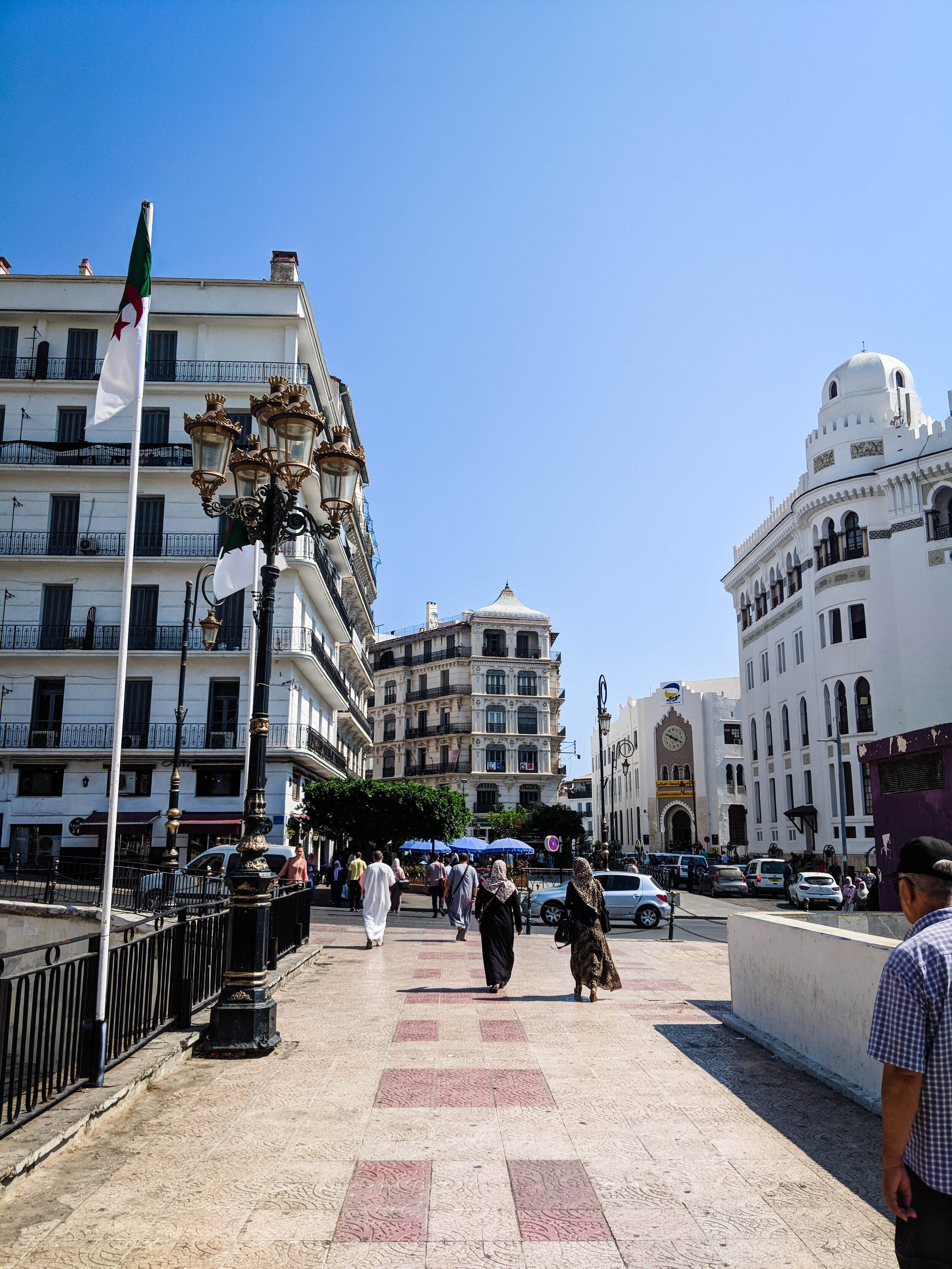
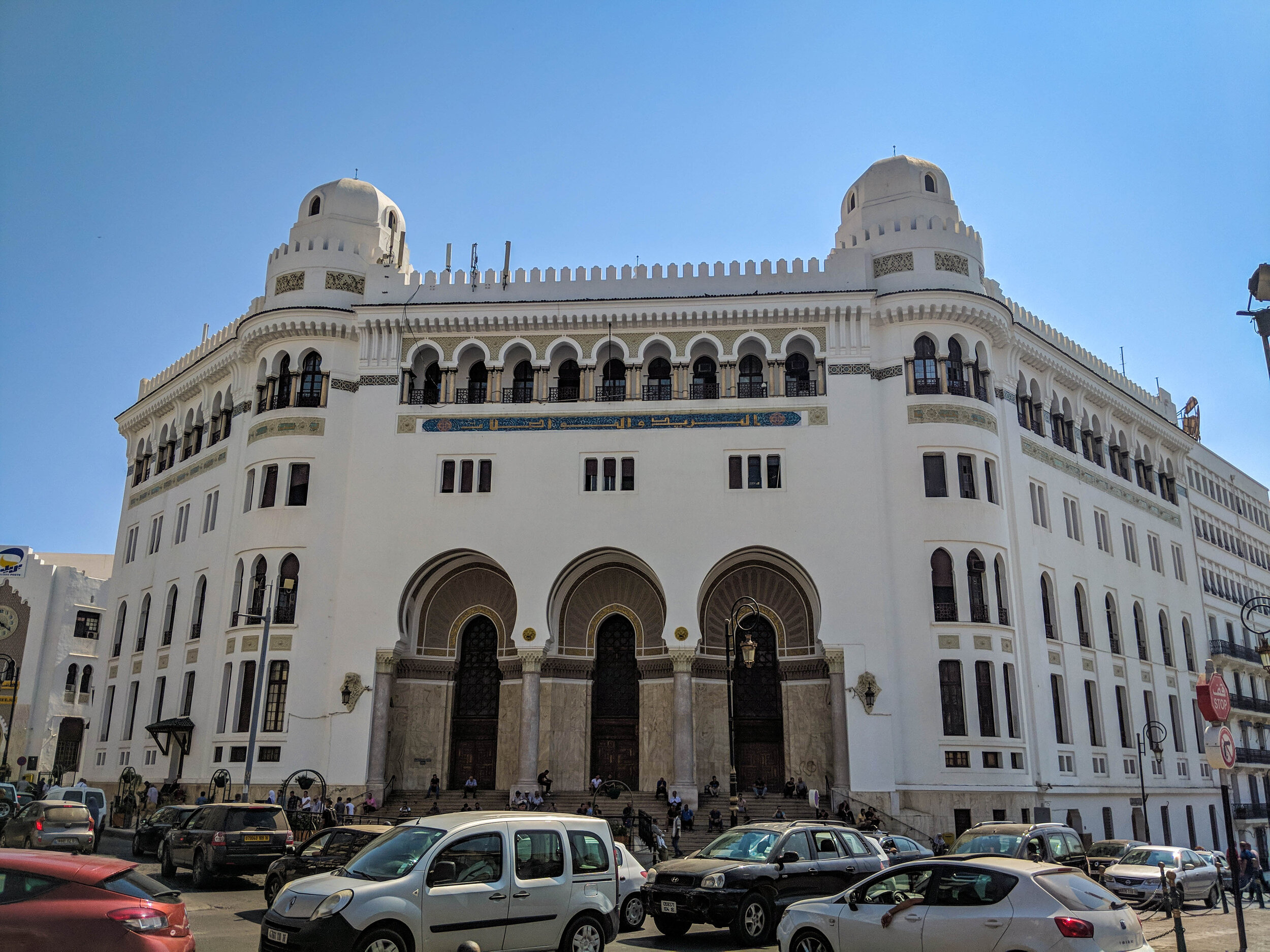
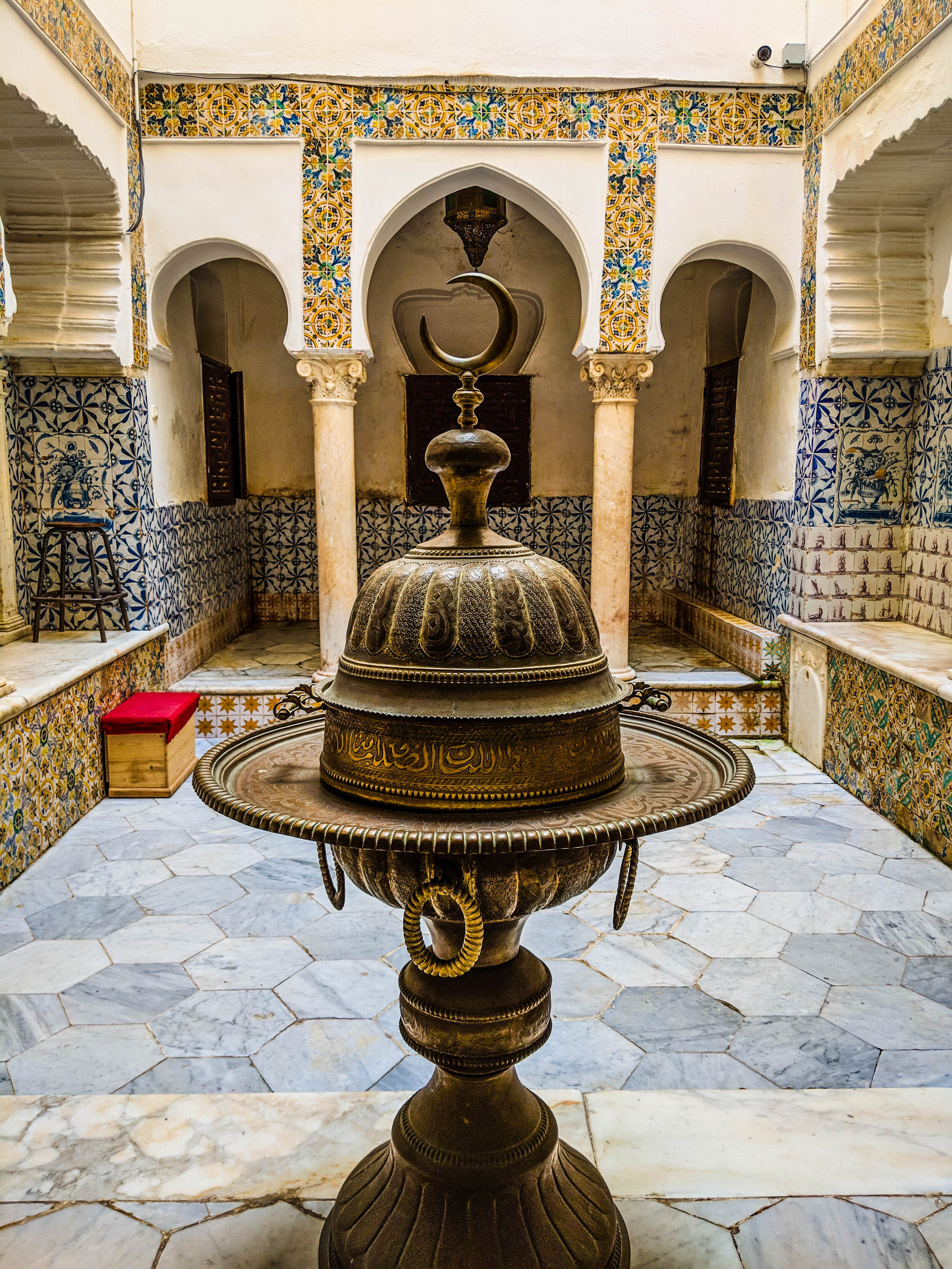
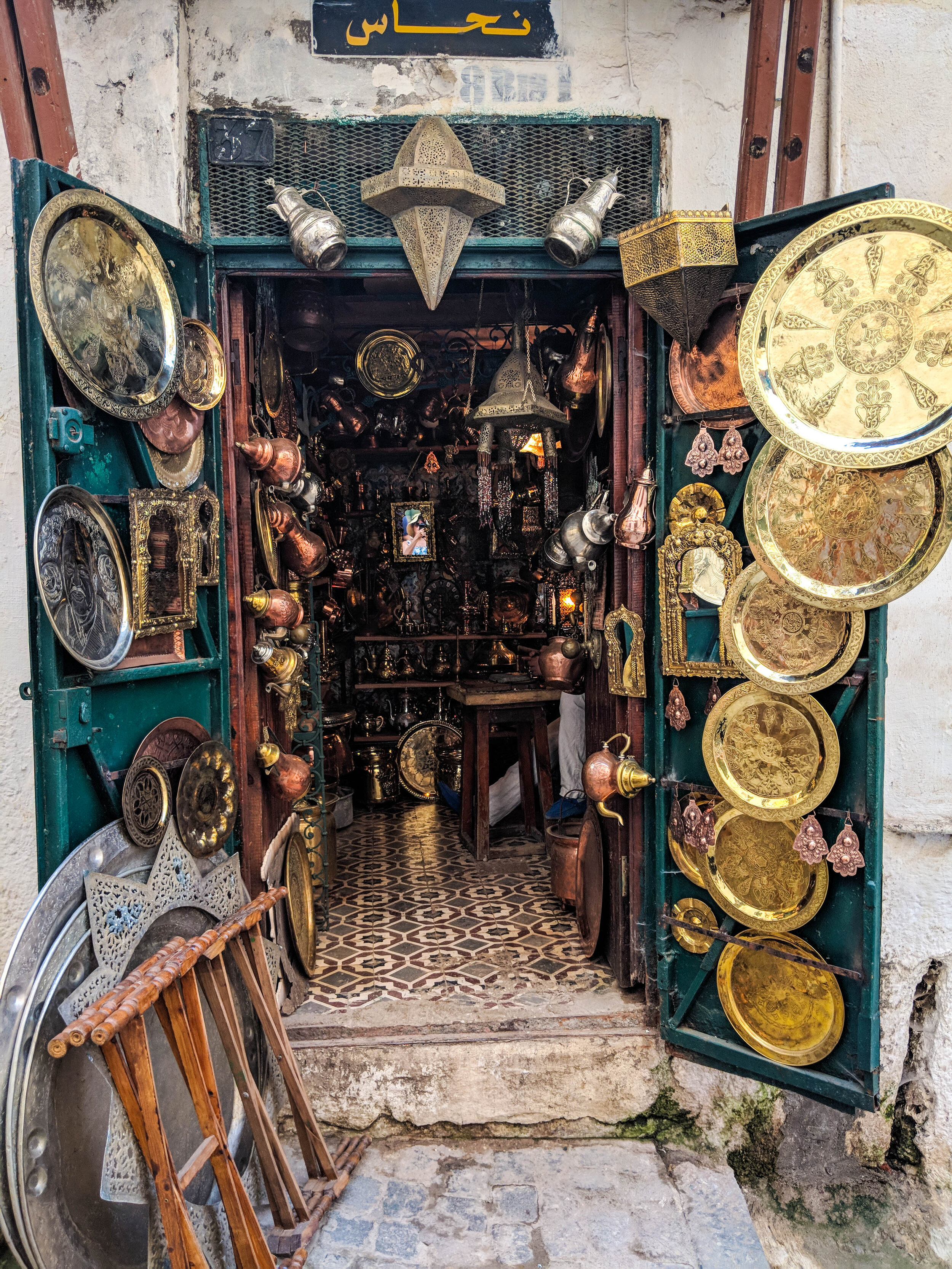
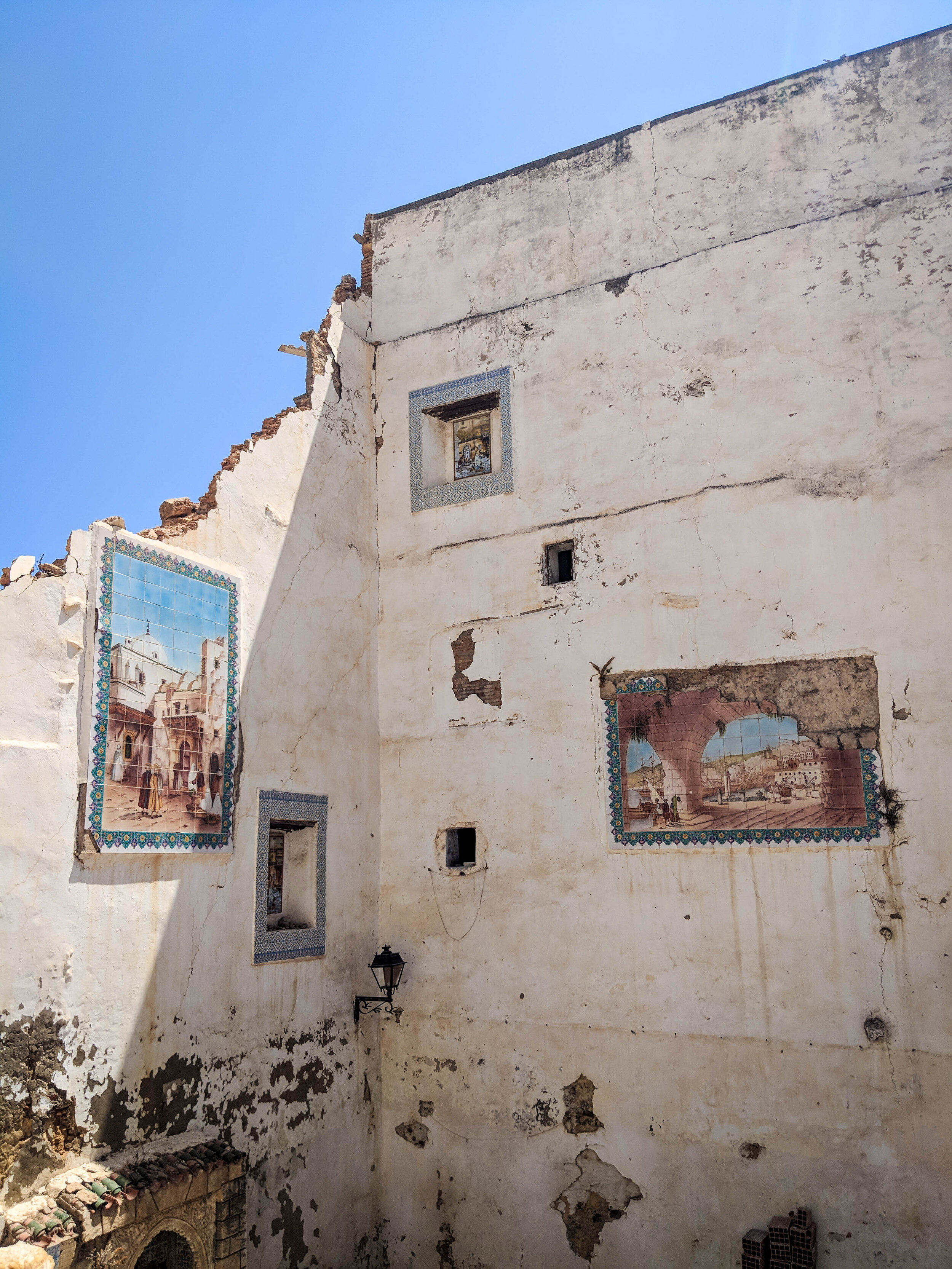
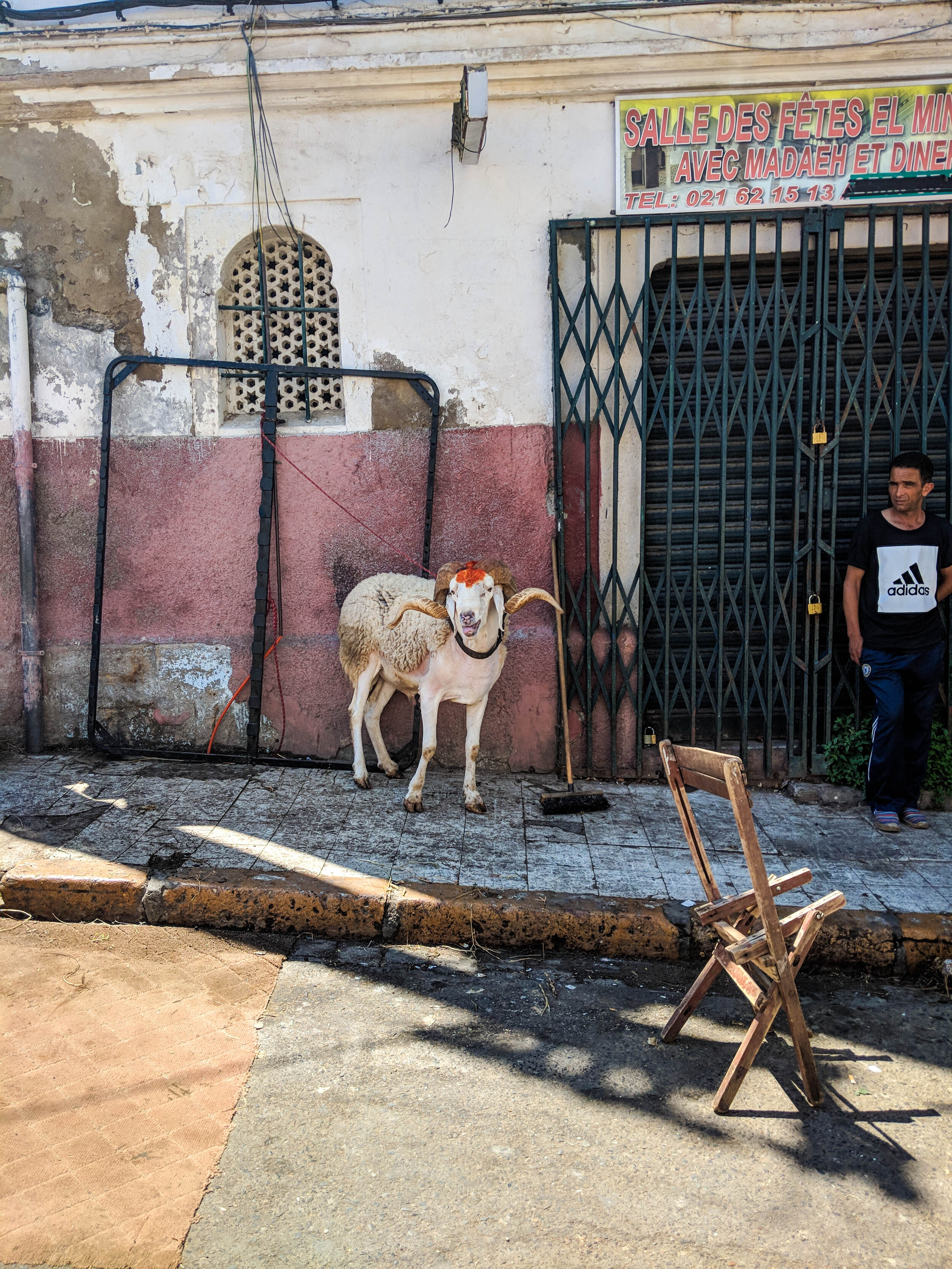
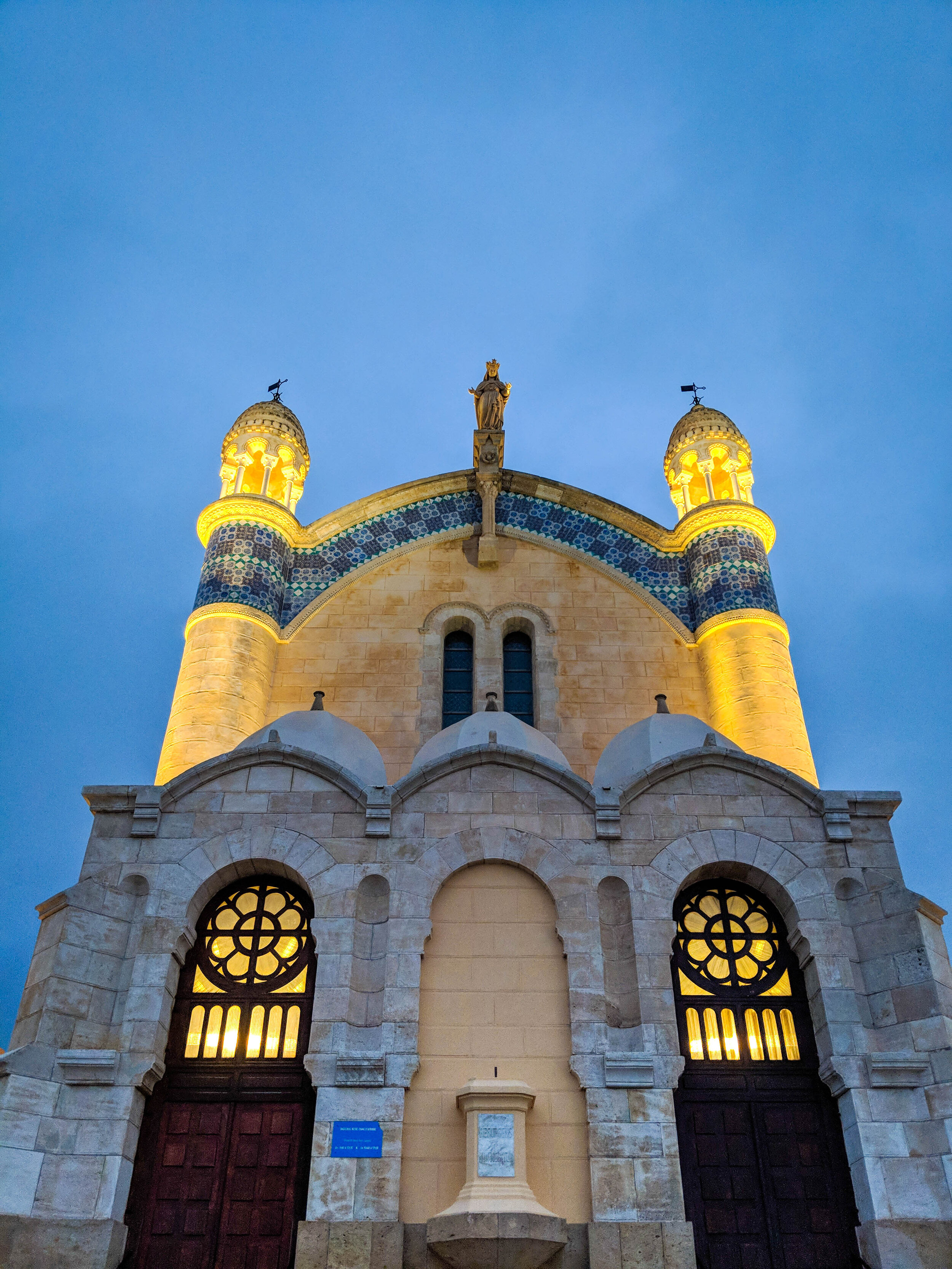
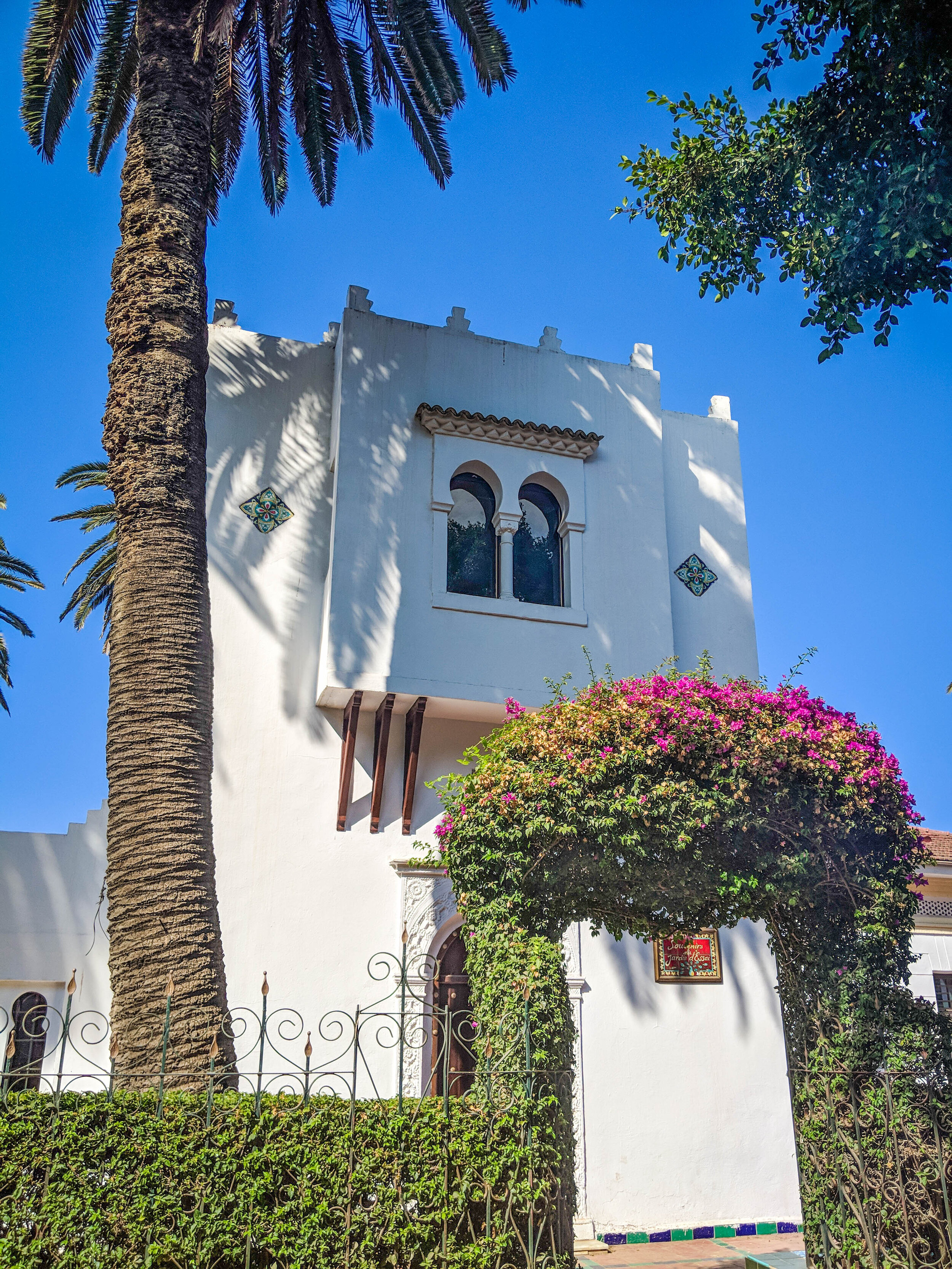
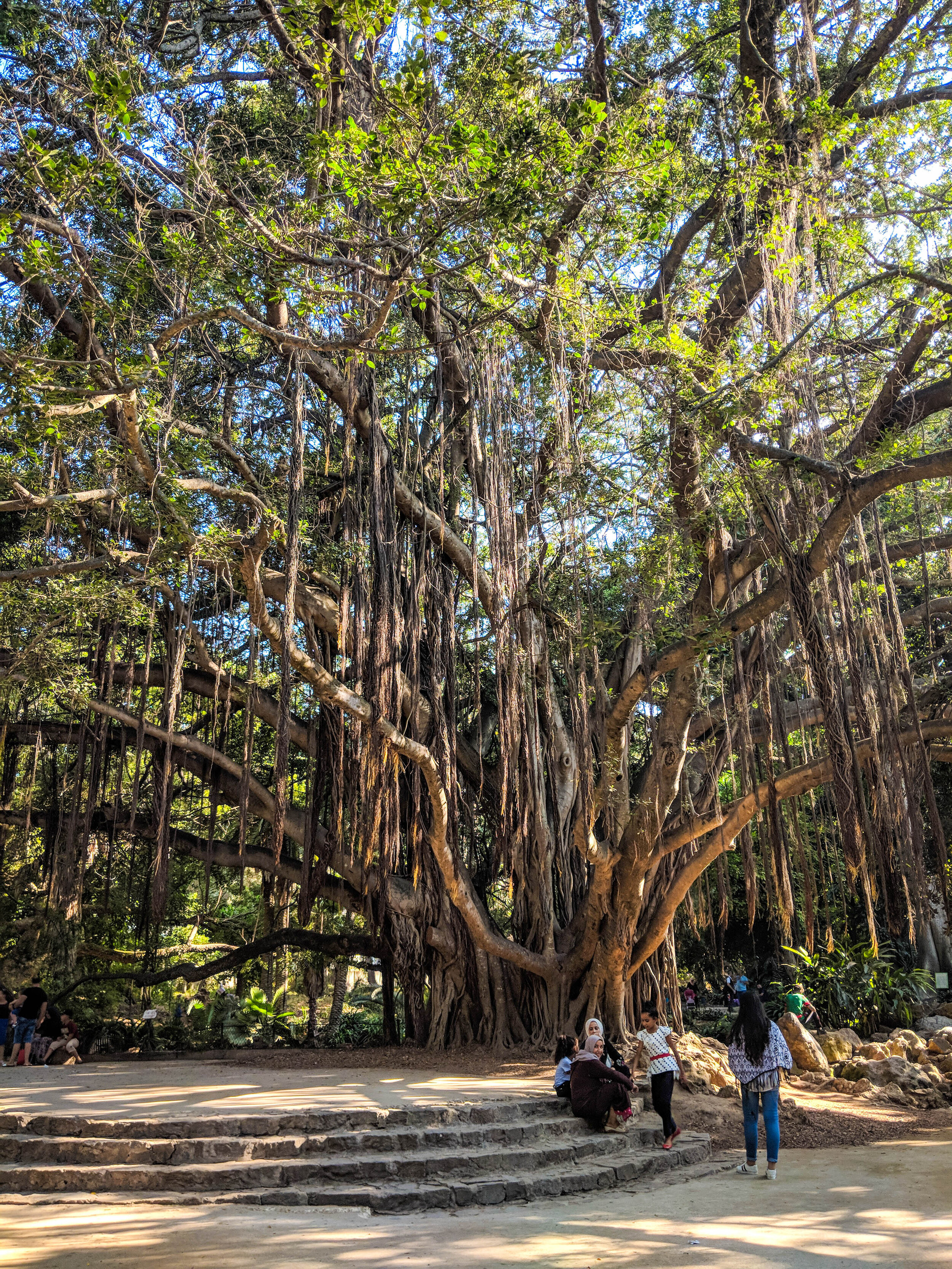
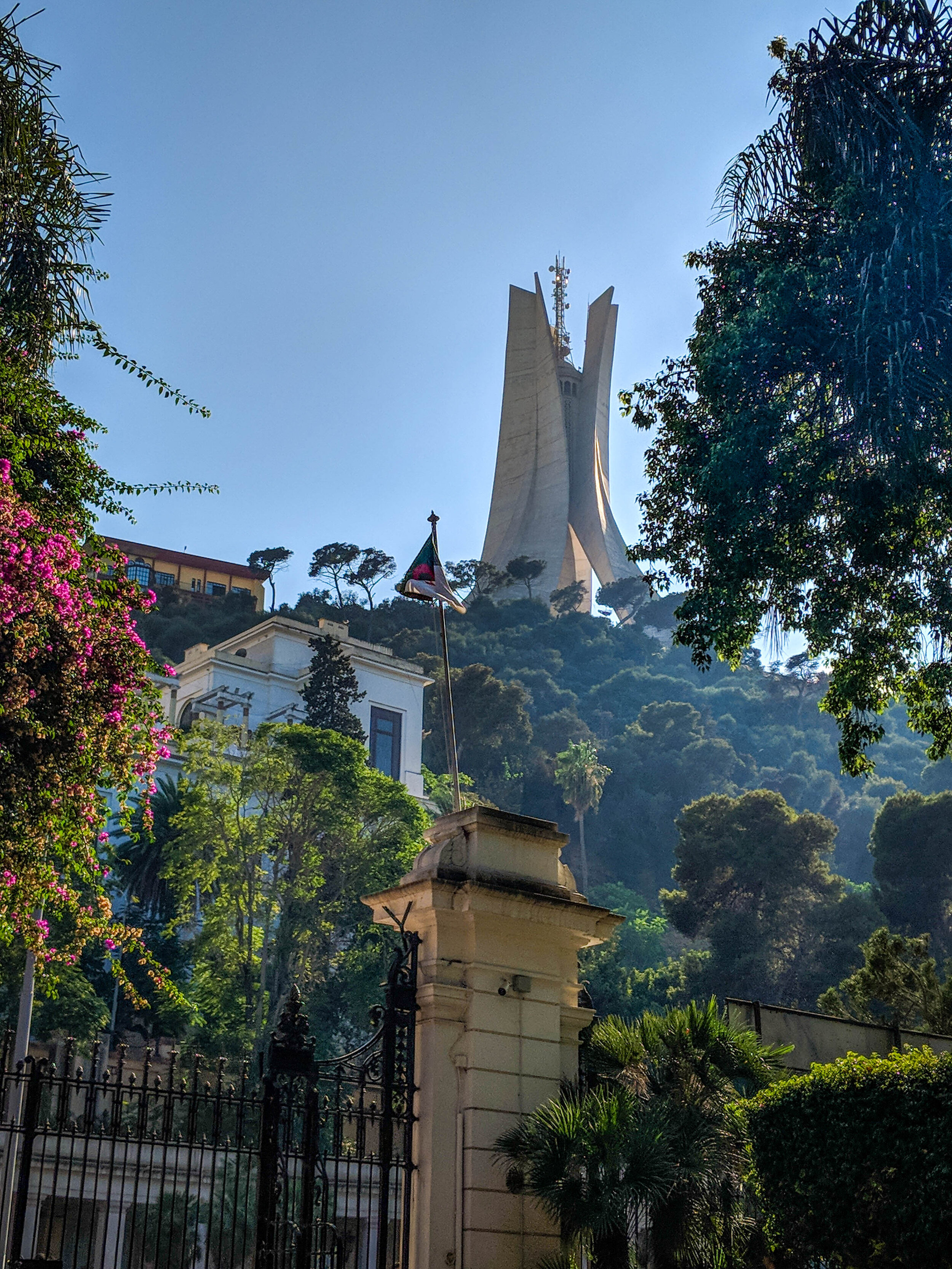

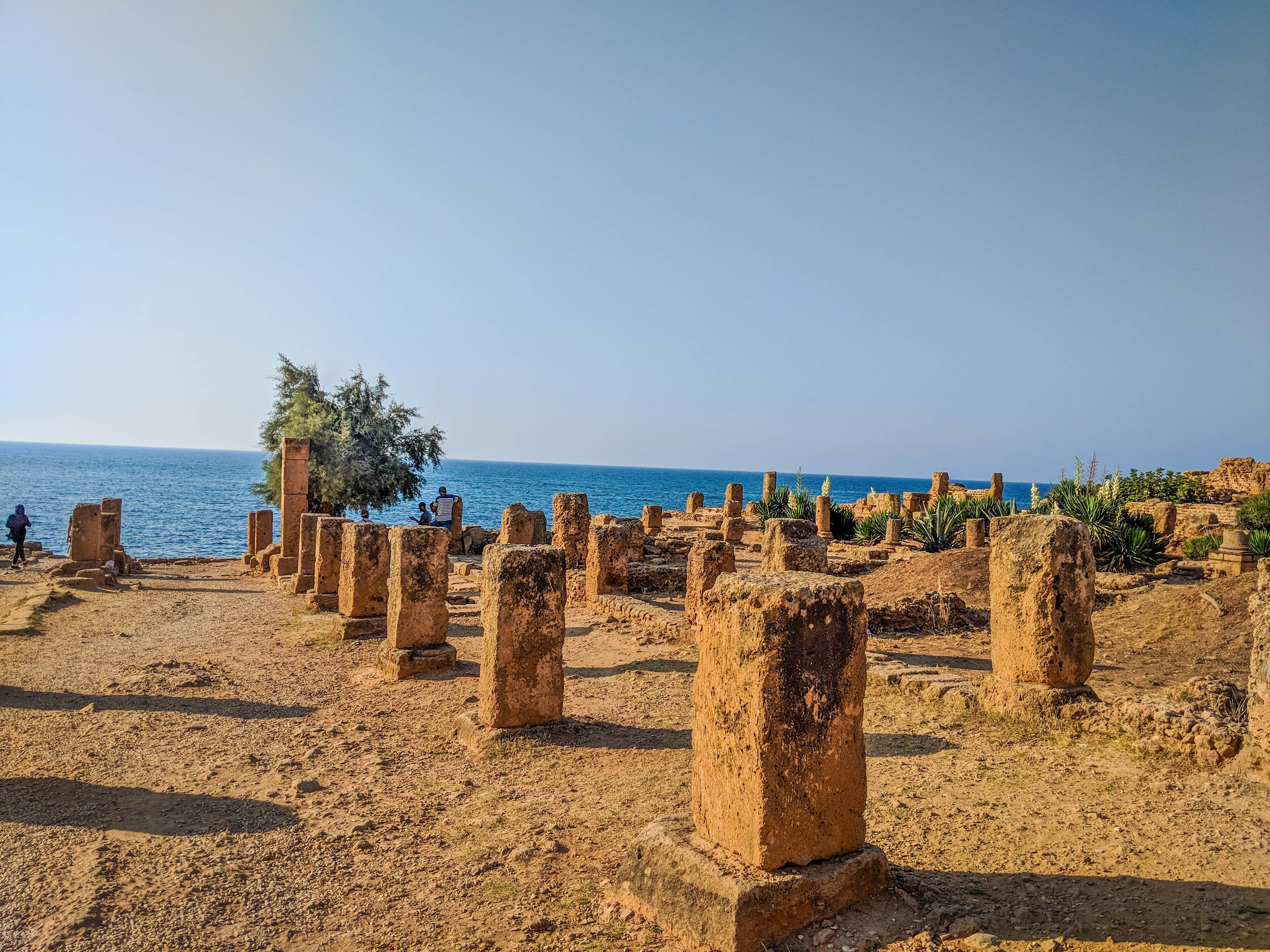
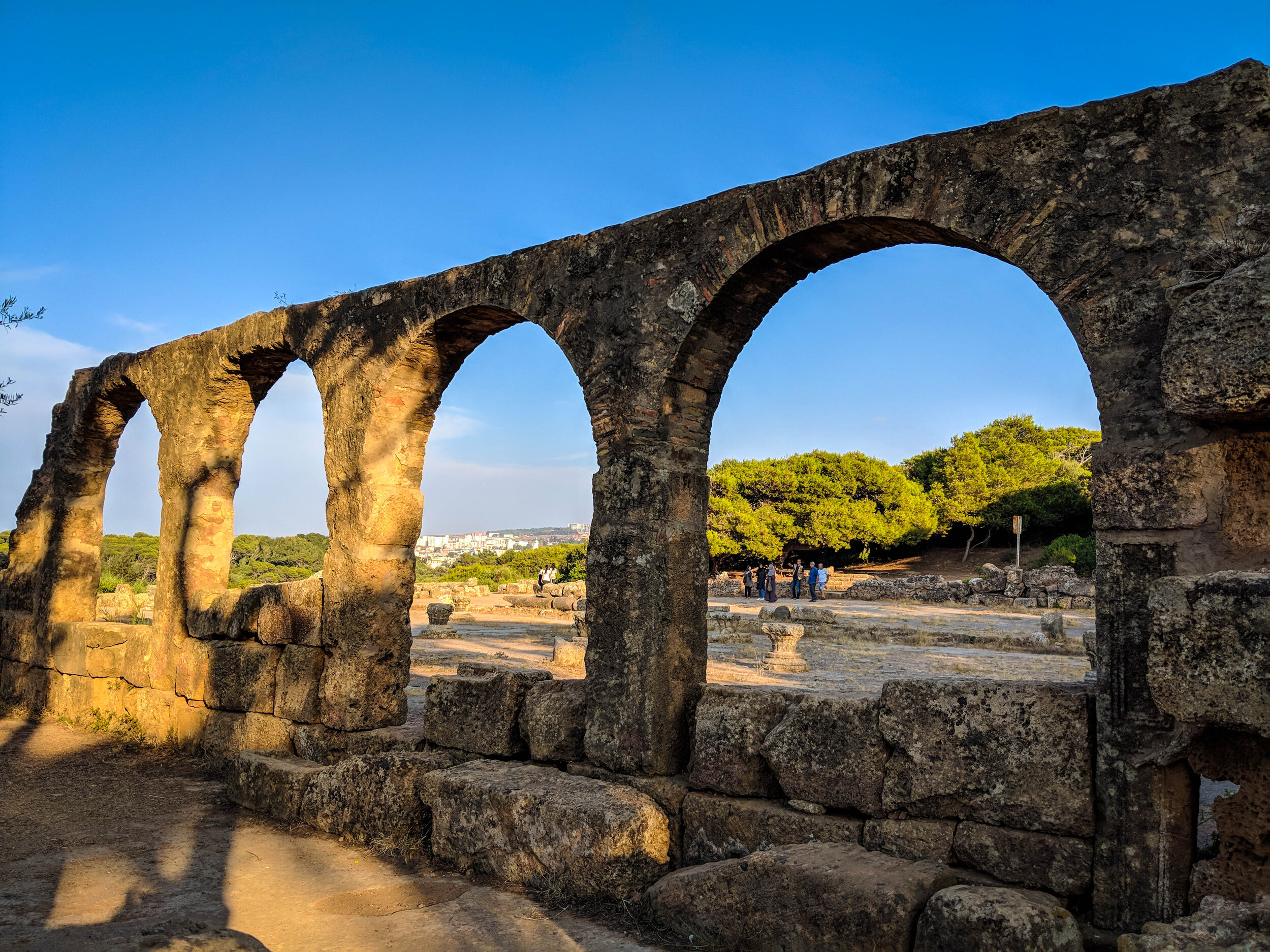
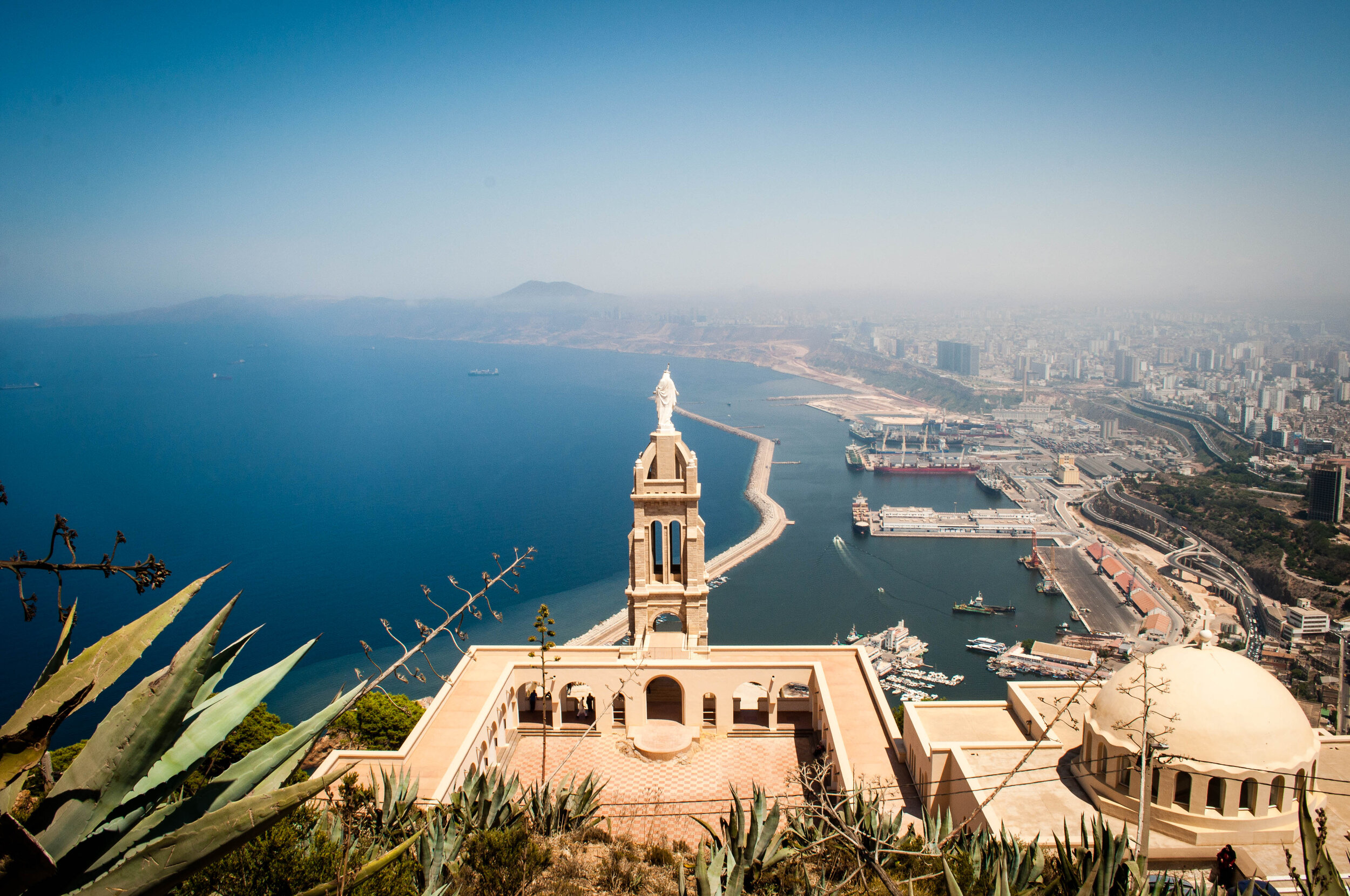
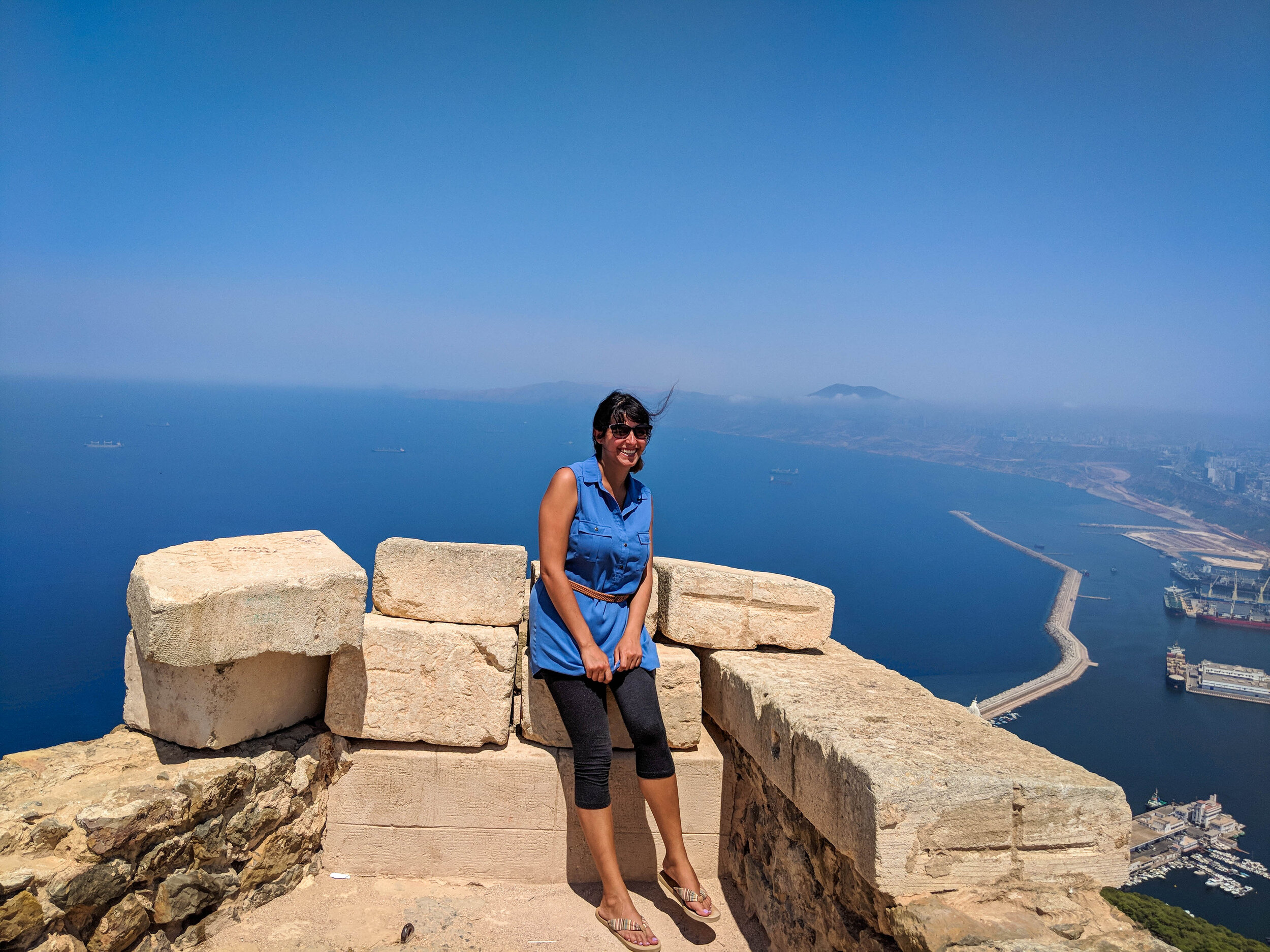
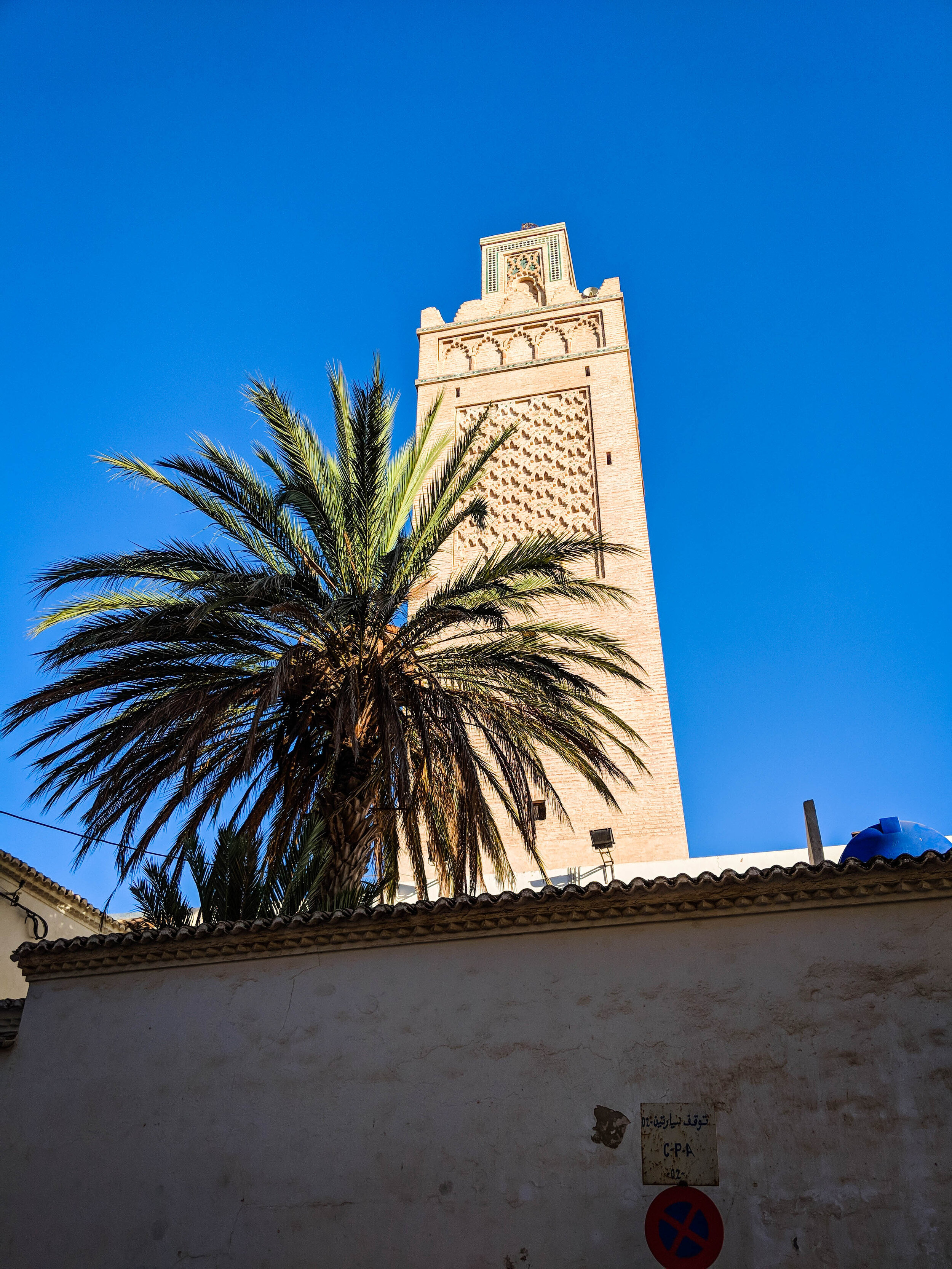
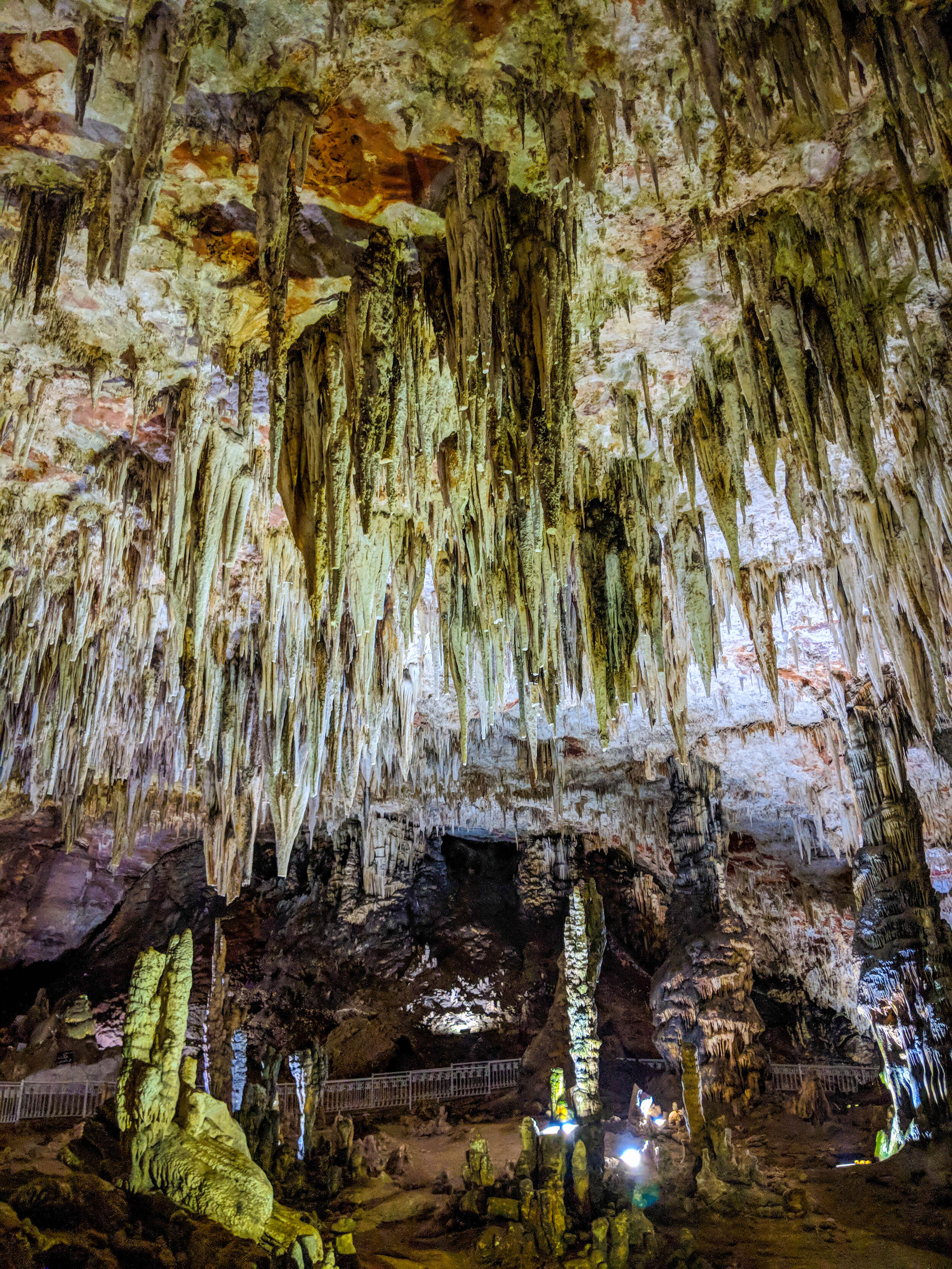


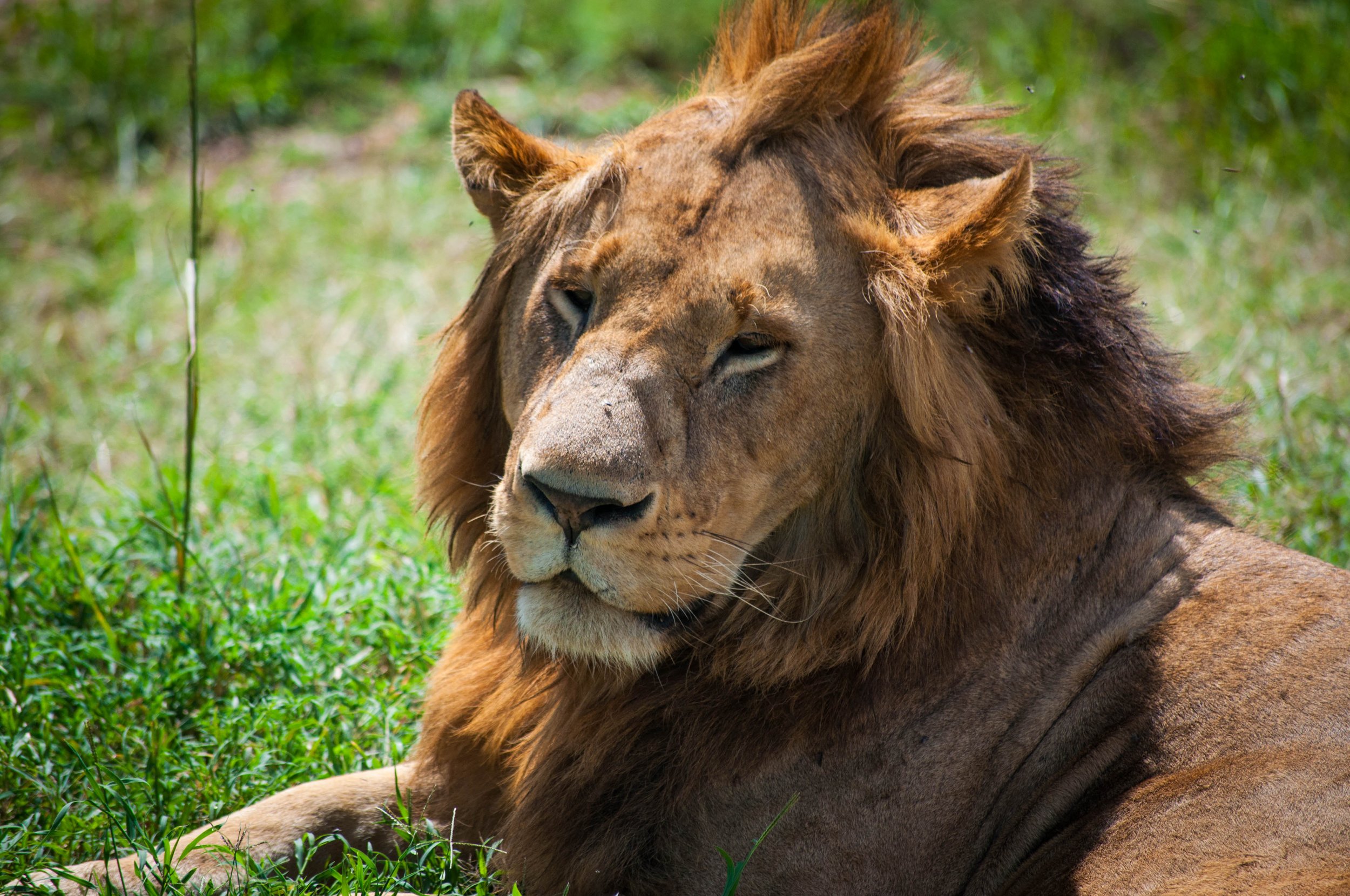




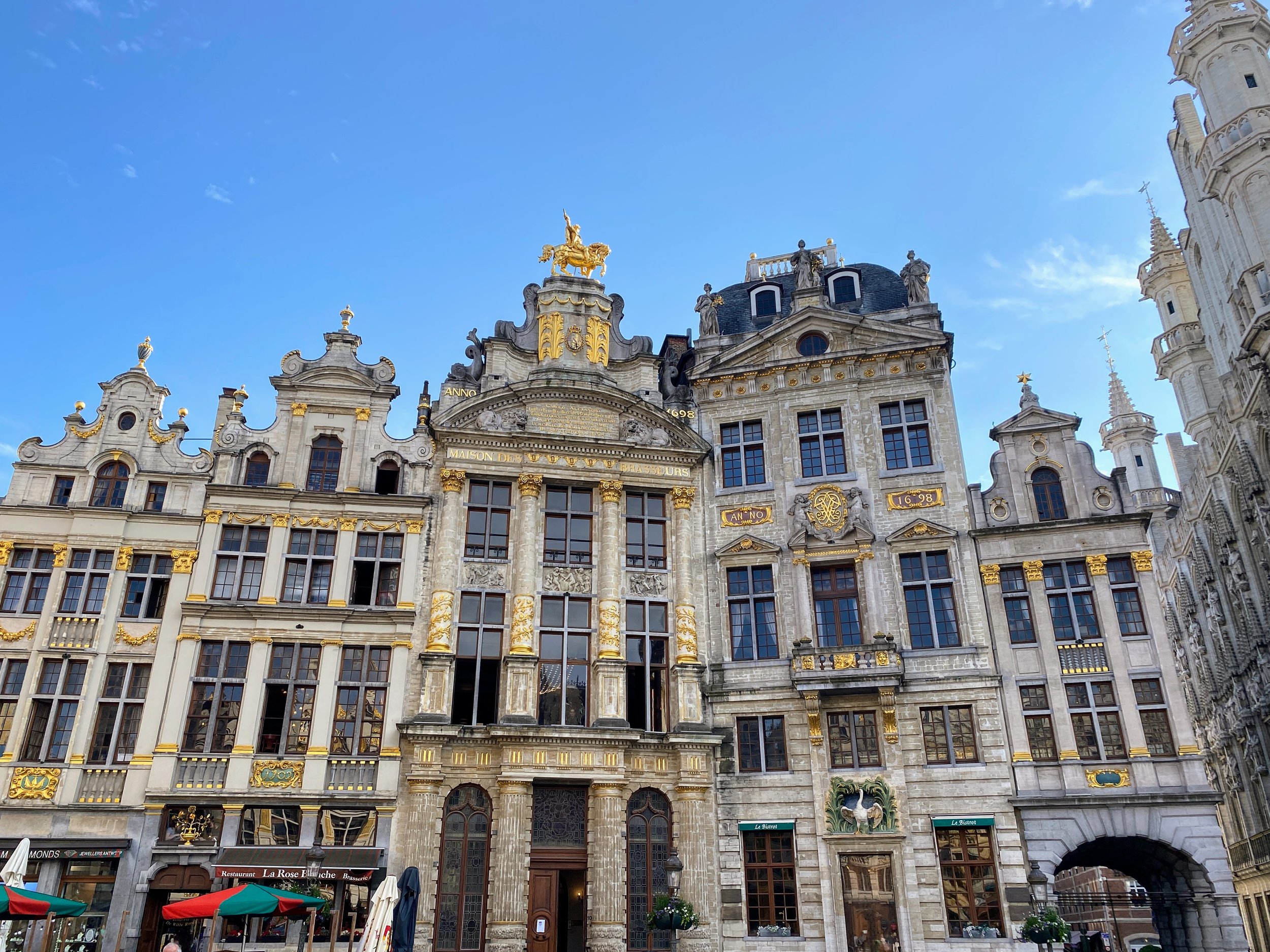
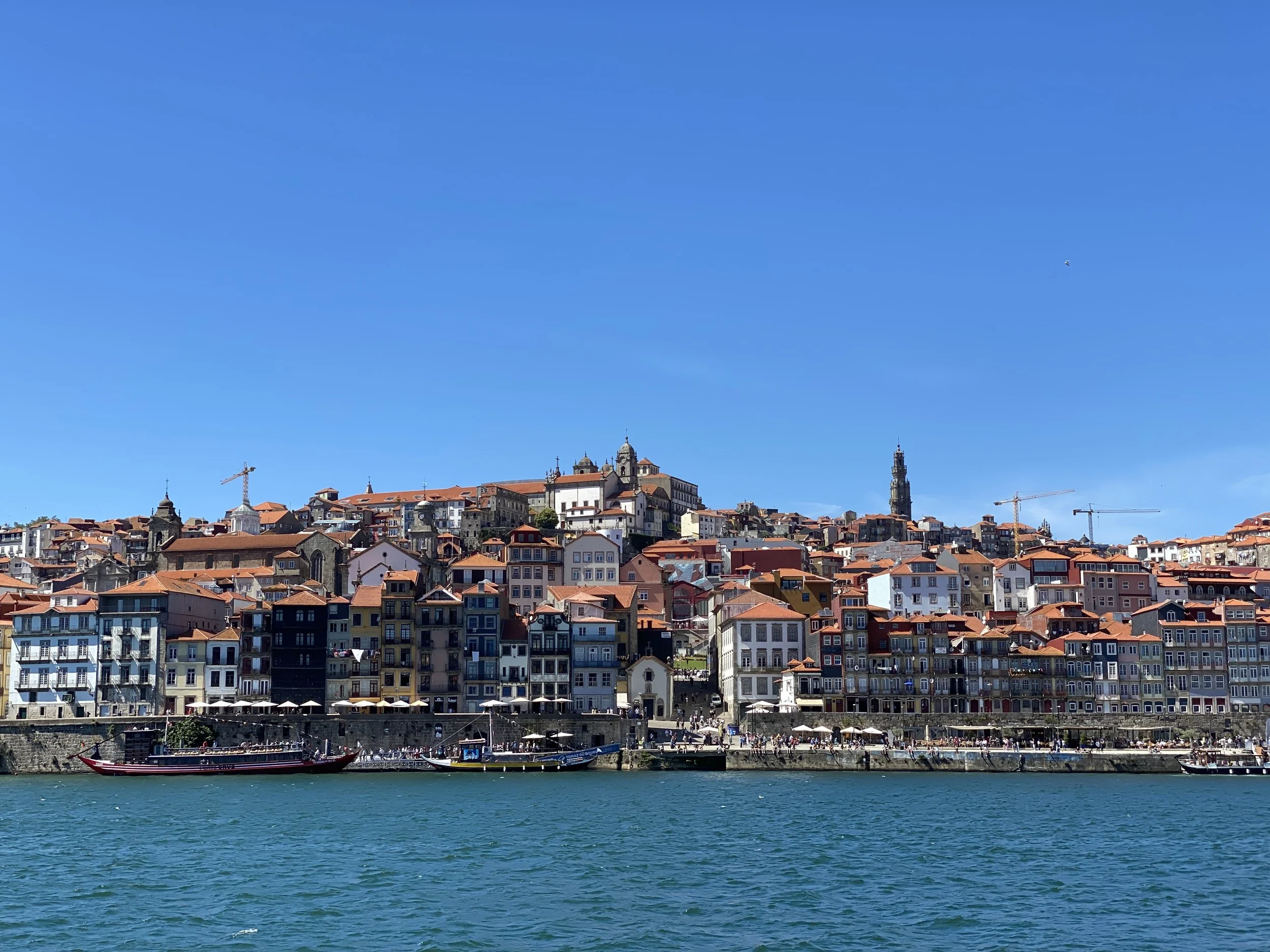


As temperatures start to ease, May might just be a great month to travel. Let’s explore some of the best countries to visit in May. Whether you seek sun-soaked beaches, cultural immersion, or breathtaking natural beauty, these destinations promise to make your May travels unforgettable. So pack your bags and join us as we uncover the wonders that await your next adventure.